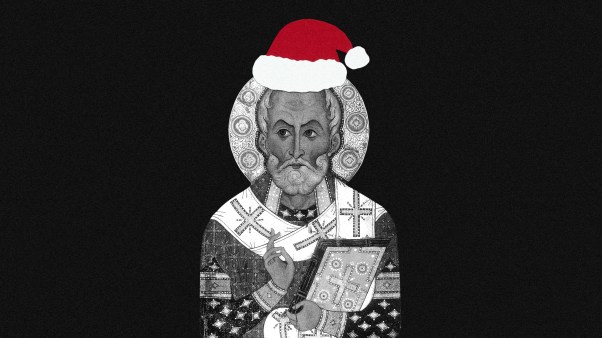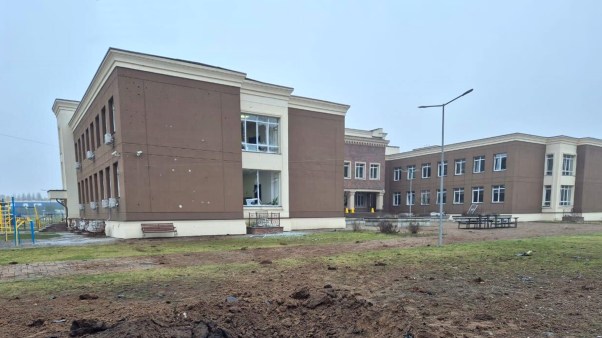I grew up under the tutelage of two different men: a farmer and a pastor. My father pastors a church in southeast Texas, serving the same place and people for nearly 30 years. He knows where to find the best gumbo in town and which neighborhoods flood first when hurricanes barrel through. He has performed around 500 funerals in that community and at that church. His roots run ‘deep’.
My grandfather, who is now with the Lord, was a small homestead farmer in east Texas, behind what we call “the Pine Curtain.” Summers with him meant cutting wood, moving feed, and fixing fences. At a long day’s end, he’d laugh and say to my brother and me, “Good work today, boys. Go to the well and drink as much water as you can handle.” Before we headed home, he’d slip us $100. At that age, we felt like millionaires. I miss him now more than ever.
I hear echoes of both men in the pages of Wendell Berry’s Jayber Crow. I discovered Berry’s poetry and essays in college but only read his novel last year—a moving story about belonging to a place and a people. While the whole work cut me to the quick, it was the dissonance between generational approaches to work and place, reflected in the characters Athey Keith and Troy Chatham, that shook me.
Why was I shaken? Well, I followed my father’s path as a local church pastor. I am a young shepherd with a young flock. Reading Jayber Crow, I realized I was falling into the same traps as the enterprising and ambitious Troy Chatham—traps my father’s generation avoided because the “tools” were less alluring.
The story comes to us through Jayber Crow, an orphan turned local barber in Port William County, Kentucky. His life and work are rooted in this little place where he sees its people from within, as a coparticipant alongside them. This county seems obscure to everyone but those who live there. But this is how places work. You only get to know a place and its people through patient participation within it.
Through Jayber’s eyes we meet Athey Keith, a Port William farmer with a fertile plot of land that he cultivates slowly and deliberately. Jayber describes him this way:
“Athey was not exactly, or not only, what is called a ‘landowner.’ He was the farm’s farmer, but also its creature and belonging. He lived its life, and it lived his; he knew that, of the two lives, his was meant to be the smaller and the shorter. Of all this Troy had no idea, not a suspicion. He thought the farm existed to serve and enlarge him.”
Athey sees himself as rooted in the land, embedded in the environment. For this reason, he isn’t eager to exploit it. Stripping the soil would be like stripping his own soul. He could rush, but he doesn’t. He knows that the way he works the land will shape the land long after he is gone.
Athey’s connection to the place itself determines the kinds of tools he is willing to use to complete the task. His tools are slow, patient, and manual. The pace of the plow ‘on’ the land is shaped by Athey’s beliefs about the plow’s place ‘in’ the land. It’s a tool. It is foreign to the soil, a necessary intrusion. The very least it can do is to cut its lanes slowly and deliberately. Athey won’t adopt tools that move over the land quickly. He is looking to cultivate, not crush.
But Athey has a son-in-law who wants to move fast. Troy, married to Athey’s daughter, Mattie, wants quick, powerful results and won’t wait for them. He eagerly embraces tools that promise this kind of rapid return and is indifferent to what these tools might do to the place itself. He gives no thought to the way of his work and how it might affect this place, interested only in what he can gain from the place, seeing nothing to give to it. Truthfully, Troy doesn’t see the farm—he sees through it.
Initially, Troy begins by mimicking Athey’s methods, not because he wants to, but because it seems fitting given Athey’s authority. The real shift comes with the adoption of a new tool: the tractor. Jayber captures the dynamic of this moment:
“You couldn’t see, back then, that this process would build up and go ever faster, until finally it would ravel out the entire old fabric of family work and exchanges of work among neighbors. The new way of farming was a way of dependence … on machines and fuel and chemicals … and on the sellers of bought things—which made it finally a dependence on credit …Troy went into debt and bought his new equipment because he didn’t want to be held back … The tractor greatly increased the power and speed of work. With it he could work more land … [and] he could work at night.”
The tractor is more than a tool. It is a symbol of land-crushing speed. Along with a quicker pace, it brings a different posture toward land and time and neighbors. Athey gives into it—not because he agrees with it, but because he is growing old and can’t work the land as he once did. The tractor doesn’t just reshape Athey’s land; it changes everything, including the people and place of which the land is but a part.
Athey is a farmer, not a philosopher. Yet like most small farmers, he has cultivated an imagination of place by living with a profound commitment to the “territory underfoot” (Berry, “The Writer and Region”). The old farmer sees that the adoption of the tractor won’t remain restricted to the farm. Jayber notes:
“And so the farm came under the influence of a new pattern, and this was the pattern of a fundamental disagreement such as it had never seen before. It was a disagreement about time and money and the use of the world. The tractor seemed to have emanated directly from Troy’s own mind, his need to go headlong, day or night, and perform heroic feats.”
Our tools reflect what we believe about time, money, and how we work in the world. As tools reshape places, they reshape the people in them. Jayber’s laments:
“I confess that I heard this with a sense of guilt, for by the time Troy began to say such things I had bought the Zephyr and had succumbed to something of the same impatience. … Even at my sedate top speed of forty miles an hour, I hated anything that required me to slow down. … Having begun by resenting the insult to Athey, I ended by yielding Troy a little laugh and a nod of understanding, which shamed me and did not make me like him any better.”
Jayber is shaped by a tractor he never uses. Its very presence in the place he inhabits begins to redefine the way he participates in this place. Troy won’t walk the farm like Athey did, and Jayber won’t walk the Port William County roads. His life accelerates as he drives through Port William like Troy drives over old Athey’s land—fast.
Our work is shaped by the tools we adopt. All work would benefit from more patient attention and unrushed presence, but it is essential when you work with people.. And pastoring ‘is’ working with people. Like good farmers, faithful pastors belong to the places they labor. When the apostle Peter exhorts the shepherds in 1 Peter 5, he tells them, “Shepherd the flock of God that is among you.” Pastors are placed people, serving real people in a real place.
I grew up seeing stacks of pink “While You Were Out” notes on my pastor dad’s desk. When he went out to lunch with a deacon to discuss the upcoming community outreach, he couldn’t be contacted at the restaurant. If a church member stopped by the office while he was gone, the secretary would jot down her their name, the time she they dropped by, and her their home phone number on a pink note. If he was in his study, working on and praying for Sunday’s sermon, missed call notes would pile onto his desk awaiting his return.
His tools were slow and personal. Names were written in ink from the living hand of a secretary who had probably asked the person, “Hey, how’s your mother doing?” Recently, I had him pull up his 15fifteen-year-old church email account to see how many emails he has sent. It was just south of 5,000five thousand. My email account, active less than seven years since planting our church, has: over t20,000wenty thousand sent emails.
Pastoring is slow work, but for young pastors like me, it has accelerated. And everyone loses when the pace of pastoral ministry quickens. Part of this is cultural, but we’ve also eagerly adopted tools of speed, telling ourselves, “We will redeem them.” In truth, they’re better at discipling us than we are at deploying them in faithful ways.
Fast pastoring is shallow shepherding. Always. Athey feared Troy’s tractors would lead him to move too quickly over too much land. He was right. My father worried pastors from my generation would prefer digital communication with their people. When I complained about a dozen emails with a parishioner to schedule a lunch to talk about histheir marriage, my father kindly said, “Wouldn’t it be better to just call him to set that up? Then you could also pray for him and he would hear you.”
Francis Schaeffer, in No Little People, wrote, “We must do the Lord’s work in the Lord’s way.” Troy is unwilling to do the farmer’s work in the farmer’s way. He is a land owner, not a farmer—showing no honor for the place itself, naive to how tools used reshape those who wield them. As dehumanization becomes the “cost of doing business,” pastors must weigh the cost of our tools and ask: Do these hinder us from doing the Lord’s work in the Lord’s way?
Like David rejecting King Saul’s armor in 1 Samuel 17, when we stand against the tools and spirit of the age, we will appear foolish. Are we willing to be forgotten shepherds who believe rocks from the brook might be more effective when slung with faith than the advanced armor of a king?
Pastors are shepherds. To do our work in the way of our Lord, we’d do well to remember he is a truer shepherd—a Chief Shepherd—who knows us all by name, who withdrew to quiet places, welcomed interruption, embraced obscurity, and spent the bulk of his ministry walking everywhere with people by his side.
Athey asked what the land could carry. Troy asked what it could give him. The question for us is just as simple: Are we here to be with our people, or to get something from them?
One is ministry. The other is ambition in disguise. If pastors aren’t careful, they will see places and people through the prisms of their tools and see nothing but a means to an end—a place for their ministry, not a place in which to minister.
Kyle Worley is a pastor in Texas, the author of Home with God: Our Union with Christ (B&H), and the host of the Knowing Faith podcast. You can follow him on social media @kyleworley.














